Introduction
In order to quantify the perception of higher education teaching staff of the creation of university incubators and the perception of increasing entrepreneurial competences within the university incubator, the questionnaire was developed for the teaching staff of higher education institutions, working in faculties with orientation in the following general fields of study: economics, social and behavioural sciences, education sciences, etc. in the university environment and teaching subjects directed towards the formation of entrepreneurial and social competences.
The issues investigated in the paper fit at the national level in the National Program in the fields of research and innovation for 2020-2023 of the Republic of Moldova, according to the specific objective 4.1. Development of tools for the transfer of scientific knowledge and results to potential users, aims to Stimulate the activity of science and technology parks and innovation incubators.
The questionnaire was developed according to Step III from which the purpose of this research emerges: Evaluating the impact of business incubators located in universities on the development of students´ entrepreneurial skills and competences of the research project “Multidimensional assessment and development of entrepreneurship ecosystem at national and regional level in order to boost the SME sector in the Republic of Moldova” in the framework of the National Institute of Economic Research partner being the Moldova State University and consists of four compartments.
Research objectives:
- Carrying out the survey regarding the evaluation of the results in the development of the skills and competences obtained within the entrepreneurial education: Questioning the teaching staff of higher education institutions;
- Analysis of the results obtained on the basis of the survey;
- Arguing the need for the activity of the university incubator in order to train the skills and competencies of future entrepreneurs.
Research Design and Methodology
The rationale for the choice of the research method took into account that the involvement of the faculty in the Innovation Incubators (within the university environment) is quite low. This conclusion was confirmed by the research results of the project (year 2020-2021), which reflect the situation of national innovation incubators in the activity and attraction of academic and university actors both in their involvement and implementation of start-ups or innovations. Thus, the (online) survey method was chosen, which allows the possibility of accessing the questionnaire without difficulty and especially people who are involved in the teaching process.
The application of the questionnaire, i.e. organizing and implementing the survey of professors was planned for the second semester of the 2021-2022 academic year during March-June 2022 at the Moldova State University in five Faculties: (1) Faculty of Economic Sciences (FSE); (2) Faculty of Psychology, Educational Sciences, Sociology and Social Work (FPSESAS); (3) Faculty of International Relations, Political and Administrative Sciences (FRISPA); (4) Faculty of Letters (FL); (5) Faculty of Mathematics and Informatics (FMI).
To answer section (B) of the questionnaire, closed-ended questions were used, which allowed the respondent to choose an answer from a certain number of options. Four types of response scales for closed-ended questions were distinguished:
- Dichotomous, if the respondent has two options;
- Nominal-polytomous, if the respondent has more than two options;
- Ordinal-polytomous, if the respondent has more than two ordered options;
- Continuous, if the respondent is given a continuous scale.
To address sections (C) and (D) of the questionnaire, the variation of the 5-point Likert scale was used, which includes five possible points for evaluating the factors:
1 = “total disagreement”; 2 = “disagree”; 3 = “indifferent”; 4 = “agree”; 5 = “total agreement”.
The questionnaire is posted on the MOODLE platform of the Moldova State University and was carried out by accessing it by professors through that platform; we also mention that part of the questionnaires was applied in physical format on paper at the request of some professors (23 respondents completed the questionnaire in paper format); the questionnaire was conducted face to face or in groups. The questionnaires collected on paper were included in the MOODLE platform system in order to have structured, visible and detailed information showing their full status.
Result
In the survey process, 118 professors were involved (participated) (31.47% professors participating in the survey); the faculties participating in the survey were divided into two compartments being a criterion, according to which the sample was structured, as follows: Social and Behavioral Sciences, Educational Sciences, Political and Administrative Sciences – 54 respondents and Economic Sciences – 64 respondents.
Table1: Breakdown of respondents by Faculties in which they work

Source: based on survey data (USM Moodle platform)
(A) Brief characteristics of the respondents
The average age of respondents is 41 years, but the most common age of respondents is 45 to 54 years (44 respondents), with an insignificant difference (8 respondents) compared to professors aged 35-44 years (35 respondents). The oldest respondent is 70 years old and the youngest is 25 years old.
The distribution of respondents according to research experience by age group shows that the largest share is held by professors with research experience between 16 and 20 years (53 respondents), followed by 10-15 years (24 respondents) and 21-25 years (17 respondents).
(B) Degree of knowledge of entrepreneurship developed in business incubators
When asked “Have you previously attended courses on the subject of economics?”, more than half of the respondents – 73 professors (62%) said that they had previously attended courses in economics subjects, compared to 45 professors (38%) who answered the opposite. At the same time, 37 respondents (68.5%) from faculties without an economics profile mentioned that they had not attended courses in economics.
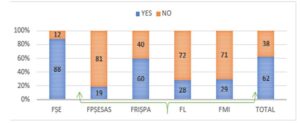
Fig.1: Breakdown of respondents attending courses in economics, %
Source: based on survey data (USM Moodle platform)
On the question “Are/were you involved in entrepreneurship activities?”, we can see from the graphical representation that 64 out of the total respondents (54.2%) mentioned that they were not involved in initiating or active in the business environment; 35 respondents (29.7%) answered positively, and 19 (16.1%) out of the total respondents mentioned that they were partially involved in entrepreneurial activity.
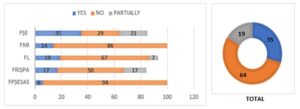
Fig.2. Distribution of respondents’ involvement in entrepreneurial activity, %/respondents
Source: based on survey data (USM Moodle platform)
To the question “Have you had family members involved in entrepreneurship?”, a number of respondents – 60 (50.8%) answered positively. If we were to analyse the results obtained on respondents from faculties without economic profile (FMI-71%, FL-52%, FRISPA-50%, FPSESAS_69%), we emphasize the fact that a large part does not use family people to be involved in entrepreneurial activity.
To the question “Are you familiar with the concept of business incubator or university incubator?”, a number of respondents – 57 (48.3%) answered positively; 32 respondents (27.1%) pointed out that they partially know how to decipher the mentioned concepts; and 29 respondents (24.6%) do not know about these concepts.
If we were to examine the results obtained on respondents from faculties without economic profile (FFPE), overall, we have the following results: Yes-10 respondents, No-24 respondents, Partially -19 respondents; we emphasize the fact that a large part do not know or partially know about the notion of “business incubator” or “university incubator”.
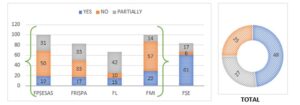
Fig.3. Distribution of respondents according to knowledge of concepts
of “business incubator” or “university incubator”, %
Source: based on survey data (USM Moodle platform)
According to the answers to the question “Do you know if there are business incubators or university incubators in other institutions?”, we can strongly confirm that the results also from the previous question, focusing on faculties without an economic profile (FFPE), show overall the same result: 36 out of 53 respondents do not know about the existence of business incubators or university incubators in other institutions, with the exception of the IMF professors (71%) being involved in research projects at the basis of which innovative technologies persist.
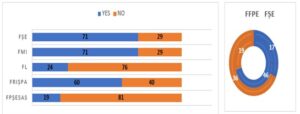
Fig.4. Breakdown of respondents by knowledge of existence of business incubators or university incubators in other institutions, %/ respondents
Source: based on survey data (USM Moodle platform)
Respondents (teaching staff) who answered positively, proceeded to the attached question “Which specific business incubators or university incubators do you know of?”, mentioned the name of the educational institution that has it, obtaining the following results:
- at the Faculty of Mathematics and Informatics, Faculty of International Relations, Political and Administrative Sciences: Technical University of Moldova, Academy of Economic Studies of Moldova;
- at the Faculty of Letters: Moldova State University, Academy of Economic Studies of Moldova (AESM);
- at the Faculty of Psychology, Educational Sciences, Sociology and Social Work: Moldova State University (MSU), Academy of Economic Studies of Moldova, Technical University of Moldova (TUM);
- at the Faculty of Economic Sciences: Moldova State University, Academy of Economic Studies from Moldova, State University of Comrat and ODIMM (ODA).
From the presented results we can emphasize that the most recognized innovation incubators in the university environment by the teaching staff are from MSU, TUM and AESM.
With reference to the question “How do you think, who has the right to participate in the creation of university incubators?”, we observe that in first place with 59.6% are higher education institutions, in fact those institutions that initiated the formation of incubators and monitor their maintenance regardless of the impediments, competition and obstacles that are currently in place. State institutions ranked second with 49.6%, important in the development and implementation of the legislative basis and evaluation of their work when funded from the state budget. Individuals (students and professors) and Student Associations scored 39.8% and 39% being those who provide an impetus to the work of innovation incubators. The business environment (legal persons) is not very visible by academics in their formation or creation accumulating only 26.2%. Although nowadays a lot of attention is paid to the connection and collaboration of the business environment with the academic (university) environment.
To the question in the questionnaire “Are you aware of the practices of creating university incubators in other countries?”, we can visualize from the graphical display (Fig.5) that 68.4% of the total respondents mentioned that they are not aware of the practices of creating university incubators in other countries, with the specification that respondents from faculties without economic profile account for 74.5%. At the same time, we can mention that 23.2% would find this information interesting.
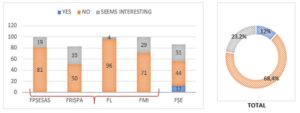
Fig.5. Breakdown of respondents according to knowledge of the practices of
setting up university incubators in other countries, %
Source: based on survey data (USM moodle platform)
On the question “What services should a university incubator offer?”, we obtained answers that in the first place with 84.6% are trainings in the field of entrepreneurship (accounting, human resources, financial, fiscal, marketing), in fact a possibility for academic staff to be trained in trainings both for students and professors of faculties without economic profile and for people attracted from outside who need knowledge in the field. The offer oriented to training in the legal field ranked second accumulating 64.2%, important in directing enterprises in the components (rulings, laws, decisions, legislative changes) of the legal framework that are at the first step of start-up and already carrying out activities but have encountered some impediments. However, the laboratories available to universities have accumulated 46.8% being in the view of academics the possibility to practice, experiment, and implement by the possibility of getting the attractiveness of ideas. Respondents’ preferences for services directed towards the offer of rented space and secretarial services (telephone, internet, printer, and mail) accumulated 39.6% and 36.6% respectively. On other types of services that can be offered by university incubators, 15.2% of the respondents said that they did not know, while 6.2% did not know what services such a structure located within the university environment can offer.
Performing the overall analysis on the results of the respondents on the questions “Would you like to know how university incubators are created, developed in EU countries?” and “Would you like to know how university incubators are created, developed in US countries?”, on average 43.2% answered positively, 26.3% are not interested in this information and 73.8% partially would like to know how university incubators are created (formed), developed in EU and US countries. Detailed information by faculty of how respondents answered these questions can be viewed in Fig. 6.1 and 6.2.

Fig.6.1 Breakdown of respondents according to their willingness to find out how
university incubators are created, developed in the EU, %
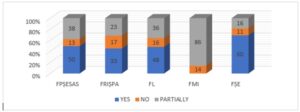
Fig.6.2 Breakdown of respondents by desire to learn how university incubators
are created, developed in the USA, %
Source: based on survey data (USM Moodle platform)
Based on the data in Fig. 4, 5, 6.1 and 6.2, we can form a general picture of the desire of university staff (professors) and the need to be permanently in an active rhythm of knowledge, accumulation, selection of activities, economic, social, financial processes for the development of priority areas of the national economy.
(C) Perception of higher education teaching staff of the creation of university incubators
It should be noted that teaching staff members are more reluctant, however, regarding the Ist cycle of the Bachelor’s degree, and for the IIIrd cycle of the Doctor’s degree, as the most suitable recipients of the study programs are considered the Master’s students. Thus, for the Bachelor’s cycle, 96 respondents among the teaching staff agree or totally agree to involve students in the activities of the incubator and 103 members of the teaching staff believe that Master’s students are more recommended for such activity.
When no equity is involved, the teaching staff considers that business incubators could be profit centers for the university.
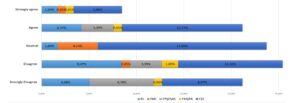
Fig. 7. Distribution of respondents by investments in a business developed in an incubator, %/respondents
Source: based on survey data (USM Moodle platform)
Thus, being asked “Do you think that university incubators could be profit centers for the university, where the incubator is located?”, 44 respondents (37.28%) from the Faculty of Economic Sciences agree or totally agree with this approach, and 16 respondents from the Faculty of Economic Sciences (13.55%) are indifferent to this aspect. It is worth noting that 85 out of a total of 118 respondents agree or totally agree that a business incubator can be a profit center for a university (72%).
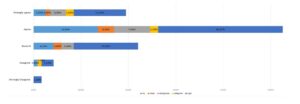
Fig. 8. Distribution of respondents by incubators as profit centers for university, %/respondents
Source: based on survey data (USM Moodle platform)
Therefore, being asked “Do you think the university should offer free space for business incubators?”, most respondents answered affirmatively. Similarly, 84 respondents (71.86%) believe that the university should provide administrative services (fax, computers, mail, internet) free of charge for a university incubator. The fixed costs for the newly created companies are a financial burden, and the awareness of this fact by the teaching staff and the university administration will boost the development of incubators and incubated residents.
We consider that the existence of a business incubator is a strong point for any university, therefore being asked “Do you think that the services offered by a university incubator will encourage future students to choose that particular university?”, 95 teaching staff members (80.50%) consider the existence of an incubator as a benefit for the future student, on the other hand 17 respondents believe that the existence or non-existence of these facilities is irrelevant for the future student.
(D) Perception of higher education teaching staff of the development of students’ entrepreneurial skills in university incubators
Respectively, being asked “Do you think that all students from any faculty should have economic subjects?”, 54 respondents (45.76%) from the Faculty of Economic Sciences agreed or totally agreed, instead 7 respondents from the Faculty of Letters were against or totally against. However, being asked “Should a university draw attention to the applicability of knowledge delivered to students?”, 102 respondents agreed with this aspect, which implies that the university environment shall be receptive to the fluctuations of the labor market.
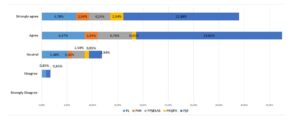
Fig. 9. Distribution of respondents by the importance of students’ knowledge of the
fundamentals of entrepreneurship, %/respondents
Source: based on survey data (USM Moodle platform)
The answers above are confirmed by the results analyzed following another question, whether lecturers should develop entrepreneurial competence for any student, regardless of his/her faculty, where we observe that 10 teaching staff members consider students not prepared to start a business, of whom 5 teaching staff members are from the Faculty of Economic Sciences, 33 teaching staff members (27.97%) from the total of 118 respondents showed a lack of interest in this competence of the students, and 65 teaching staff members (55.08%) agree or totally agree. We note that a desire for education in the Republic of Moldova is the development of human potential to ensure life quality, sustainable growth of the economy and well-being of the people. However, being asked “Should a university draw attention to the applicability of the knowledge delivered to students?”, 102 respondents agreed with this aspect, which implies that the university environment shall be responsive to the fluctuations of the labor market.
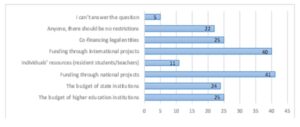
Fig.10 Distribution of respondents regarding the resources to be financed for the creation of university incubators, number of respondents
Source: based on survey data (USM Moodle platform)
From figure 10, we can see that the majority of respondents are of the opinion that the creation of incubators should be done from various national and international projects; 40 respondents chose these options. 25 respondents believe that it would be appropriate to establish business incubators using the budget of higher institutions or the budget of state institutions. The least respondents would agree to get involved with their own resources.
The skepticism of the teaching staff regarding the businesses initiated within the university also arises from the analysis of the answers to the question, “Do you think that students have integrative knowledge to start a business?”, where we observe that 32 respondents (27.12%) disagree or strongly disagree with this statement, which implies that students in the opinion of teachers are not ready to launch businesses on their own, even if they are psycho-emotionally ready. 53 respondents (44.92%) have confidence or total confidence in the integrative knowledge of students to leave a business, and 33 teachers (27.97%) are indifferent about this detail.
Since any initiated project requires a well-established budget, in this research we aimed to emphasize the teachers’ choices about the ways of financing the business incubator and the incubated residents, and who should support them to have a high survival rate.
If we are to make an analogy with the incubators monitored by the Organization for the Development of Entrepreneurship, during the years 2009-2021, 731 resident companies benefited from the services of the Business Incubators, of which 268 are current residents and 463 graduate companies; the survival rate of graduate companies is 74%.
Discussion
The research component represents an important part in the activity of the university environment, but also in the activity of the business environment, having a priority to connect the important actors to maintain and develop the state’s economy, of course with the support of relevant institutions.
According to the National Program in the fields of research and innovation for the years 2020-2023, it was found that the vulnerability constantly mentioned in the context of scientific activities is related to the weak connection between the scientific community and the business environment.
The lack of dialogue between the representatives of the two spheres at the national level results not only in the reduced degree of implementation of the research results, but also in the low level of absorption of new technologies by the business environment.
It is important for the members of academia to cooperate, support and operate within innovation incubators, as students are likely to start their own business. Therefore, the service provided by academic business incubators set up by universities can be an attractive and decisive factor for young people to study at a particular university, the opportunity to implement their business idea and accumulate entrepreneurial skills and competences and more.
The entrepreneur in the academic (business) view is the person who is willing to take risks (dangers) and dedicate effort and time to start their own business. In turn, the business may offer services or products or may be oriented towards marketing (marketing specialism) or managing the business (management, finance, etc.). It can be a university-based business (business incubator), but it can also be an IT start-up, using or creating (electronic) platforms. What we cannot confirm regarding the teaching staff versus economic specialties, highlighting that the perception of having an idea and being initiated in one’s own business or in providing services (consulting) by applying skills and methods that would allow forming the spirit of the innovator and entrepreneur within the incubator is quite vague and sometimes unclear.
Doga-Mîrzac (2015) mentioned that, the same time, innovation incubator located in the university environment must allow the mobilisation of a network of skills, to properly guide the owners of selected projects with human, material and financial means. It is a network of academic activities to encourage and support – financially, technically and managerially – University employees and students in the creation of their own productive structures, using all forms of support, guidance and consultancy – with the aim of commercial exploitation of an innovative idea or an invention of a product, service or technology, developed within the framework of university research activity or collaborating research institutions.
In conclusion, we would like to mention that the teaching staff of higher education institutions are receptive to the existence of university incubators within higher education institutions, as they consider that all students shall participate in these projects, regardless of the faculty they graduated from; At the same time, entrepreneurial knowledge is not considered mandatory, it is a target for all students. At the same time, we mention that the teaching staff welcome the involvement and support of university business incubators, but they do not agree to be involved financially in various projects initiated by students within the incubator. Another revealed aspect is the openness towards universality; the adoption of good practices is considered a useful approach, and the application to various international projects is considered beneficial for both incubators and incubated companies.
Conclusions
Based on the description and analysis carried out and the results of the survey of higher education professors on the perception of the creation of university incubators and entrepreneurial skills of students in them (case study according to the survey of USM) and those mentioned in the study, we can conclude and emphasize some important aspects to redress both the economic situation and the framing, and the support from professors and students in the formation and activity of the entrepreneurial university through the innovation incubator (and not only):
- Strengthening the link between the academic environment (university) and the economic environment to increase economic competitiveness by promoting the reorganization and activity of the Innovation Incubator (Business and Technology Incubator) and supporting young people in developing the practical skills needed in the business field through university staff (professors with skills and competences in the field);
- The need to reorganize the innovation incubator “Inventica” into the Technological and Business Incubator, diversifying its activity within the Moldova State University by forming the entrepreneurial initiative from the university environment and offering services, with the objective of attracting students/teachers and implementing Start-ups;
- Development of the module (course) “Business Incubator versus Innovation Incubator” (“Business Incubator Activity”) within the continuous training program will allow professors to inform and familiarize themselves both with the knowledge of the concepts of “business incubator” and “innovation incubator” and their functionality and involvement through various offers of teaching staff (focused on respondents and other information) through the Continuous Training Resource Center (CRFC) of the Moldova State University;
- Taking the example of Romania through the “Entrepreneurial University” which offers a new approach to entrepreneurship and innovation in the university environment and transforming higher education institutions into engines that bring progress in the community and at the same time oriented towards supporting universities in developing entrepreneurial approaches, at management level, in relation to the business community, as well as entrepreneurial education and dynamic preparation for the labour market (JA Romania, 2022);
- Creation of associations of university incubators with the involvement of the teaching staff and students to promote the academic environment on the international university market with the aim of creating international businesses in university incubators from the Republic of Moldova, and attracting foreign students for the possibilities offered by local universities.
Note
The article was developed within the application Project of the “State Program” competition (2020-2023): 20.80009.0807.38 “Multidimensional assessment and development of the entrepreneurial ecosystem at national and regional level in order to boost the SME sector in the Republic of Moldova”, funded from the state budget of the Republic of Moldova.
References
- Doga-Mîrzac M. (2015) Management of the financing system of small and medium-sized business in the context of the development of economic processes, PhD thesis in economics, Chisinau, Moldova State University, pages 292 CZU:005.915:334.72.012.63/.64
- JA Romania Entrepreneurship University [Online], [Retrieved September, 2022], https://www.jaromania.org/proiecte/proiect-universitatea-antreprenoriala
- National programme in the fields of research and innovation for 2020-2023, Annex no.1 to the Government Decision No.381/2019, [Online], [Retrieved September, 2022], https://ancd.gov.md/sites/default/files/document/attachments/Program%20national%20cercetare%20inovare.pdf
- Doga-Mîrzac M., Ataman V. (2022) Analysis of higher education professors’ perceptions of the creation of university incubators and students’ entrepreneurial skills within them. (case study – Moldova State University), 40th IBIMA Conference, 23-24.11.2022, Seville, Spain, ISBN:979-8-9867719-0-8, ISSN:2767-9640 https://ibima.org/accepted-paper/analysis-of-higher-education-professors-perceptions-of-the-creation-of-university-incubators-and-students-entrepreneurial-skills-within-them-case-study-moldova-state-university/https://www.youtube.com/watch?v=iCheFl_8PEE&ab_channel=IBIMAMedia














